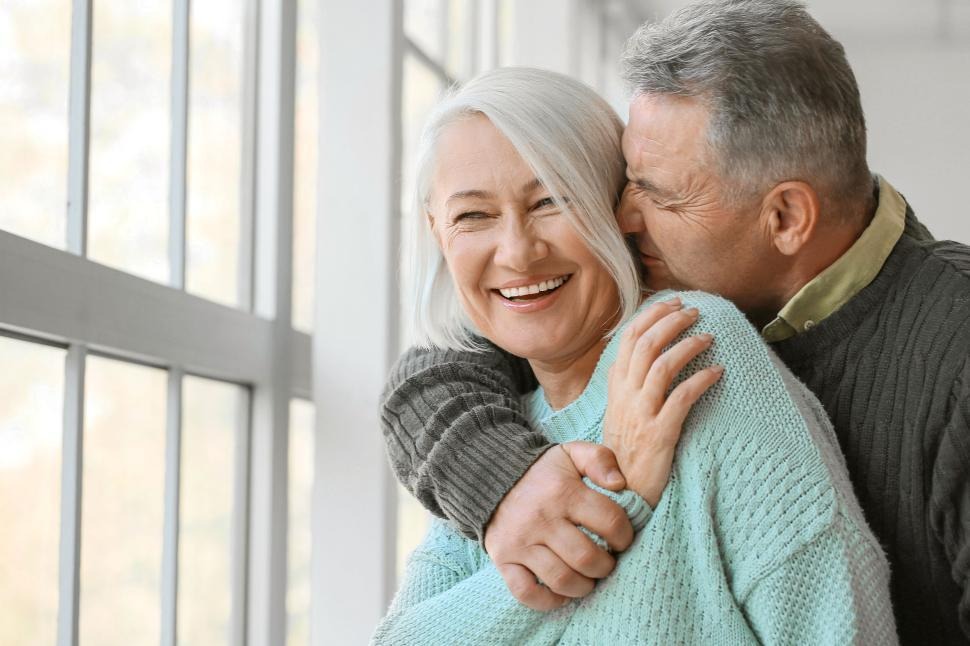As women age, conversations around sexual health, body awareness, and personal well-being often fade into the background. Yet, for many women over 50, the journey of self-discovery and intimacy is just beginning. And there’s one unexpected factor that plays a key role in this renewed empowerment: back health.
Strengthening the back and maintaining spinal mobility isn’t just about posture—it’s about reclaiming confidence, ease of movement, and overall well-being, including in intimate relationships.
This article explores how back-focused wellness routines contribute to sexual health, physical freedom, and emotional connection in mature women.
Why Back Health Matters in Sexual Wellness

A healthy back supports nearly every part of physical intimacy: from posture and balance to stamina and comfort. As women reach their 50s, 60s, and beyond, hormonal changes, muscle loss, and joint stiffness can affect how they feel in their bodies—and in the bedroom.
Maintaining spinal strength and flexibility supports:
-
Pelvic mobility and lower body circulation
-
Freedom of movement during physical closeness
-
Reduction in joint stiffness and muscular pain
-
Postural confidence, which directly influences body image
When a woman feels strong, upright, and mobile, she often feels more comfortable initiating, receiving, and enjoying intimacy—not only physically but emotionally.
The Link Between Body Awareness and Confidence

Women often report that midlife brings a shift in self-perception. Some feel disconnected from their bodies due to years of caretaking, professional stress, or health challenges. Others may experience self-consciousness around changes in body shape or energy levels.
Back-centered routines, such as gentle yoga, mobility stretches, and core strengthening, serve as a powerful reminder: your body still belongs to you—and it can still move with grace, strength, and pleasure.
Improving back health can:
-
Rebuild physical connection with the body
-
Foster sensory awareness and mindfulness
-
Reduce fatigue and discomfort during physical activity
-
Reinforce feelings of self-trust and personal agency
This reconnection often translates into greater willingness to express intimacy and desire.
Common Challenges Women Face After 50—And How the Back Helps

1. Lower Back Tension and Discomfort
Many women experience tightness in the lower back or hips due to sitting, stress, or postural habits. This can interfere with relaxation and ease during physical closeness.
Solution: Gentle pelvic tilts, seated twists, and hip stretches can loosen tension and restore comfort.
2. Stiffness That Limits Mobility
Joint stiffness in the spine and hips can reduce range of motion, making some positions or activities less accessible.
Solution: Incorporating back-friendly exercises like cat-cow, bridges, and child’s pose improves spinal mobility and increases comfort.
3. Core Weakness and Fatigue
Core weakness, especially in the lower back and abdominals, can cause fatigue during intimate moments.
Solution: Exercises like bird-dog, wall angels, and side planks gently strengthen the core and support longer-lasting movement.
4. Postural Insecurity
Rounded shoulders or a slouched posture can affect both physical and emotional openness. Good posture enhances circulation, breathing, and psychological presence.
Solution: Standing tall with posture correction drills not only supports spinal health but also boosts body confidence.
The Psychological Impact: Strength in Stillness

Beyond the physical benefits, back-focused wellness influences the emotional aspect of intimacy. When a woman carries herself upright and feels free in her spine and hips, she naturally exudes more confidence and presence.
Research in psychophysiology suggests that posture affects:
-
Hormone regulation (like cortisol and serotonin)
-
Perceived attractiveness and openness
-
Mood, relaxation, and stress levels
In short, a woman who works on her back is also working on her mindset, her emotional well-being, and her relationship to self and partner.
Movement Practices That Support Sexual Wellness
Here are accessible practices any woman can begin—no gym required:
✅ Chair Yoga for Spinal Flexibility
Seated twists, lateral bends, and spinal rolls gently stimulate the back without strain.
✅ Gentle Pilates for Core Support
Low-impact movements like bridges, leg slides, and pelvic lifts improve deep muscle tone and control.
✅ Mobility Drills for the Hips and Spine
Foam rolling, wall stretches, and dynamic hip openers improve blood flow and reduce stiffness in key areas.
✅ Postural Realignment Techniques
Practices like wall posture resets and shoulder blade squeezes promote upright alignment, energy, and poise.
These routines can be done daily, even in short 10–15 minute sessions, and significantly improve movement confidence.
Real Women, Real Results
Marissa, 62, Toronto
“I didn’t expect a few posture exercises to change how I felt about intimacy, but it did. I feel open again—in my body and in my heart.”
Trang, 58, Hà Nội
“After menopause, I felt stiff and closed off. When I started stretching and strengthening my back, I became more relaxed, more present. It changed everything for me and my partner.”
Nina, 66, Melbourne
“I’m not chasing my 30s. I just want to feel good in my body again. Working on my back made me realize how much that impacts how I connect with my husband—and myself.”
Frequently Asked Questions (FAQ)
Q: Is it normal to feel less comfortable with intimacy after 50?
A: Yes, especially during or after menopause. Hormonal, physical, and emotional changes can all impact desire and comfort. But many women find renewed connection through gentle movement, mindfulness, and back support routines.
Q: Can these exercises really improve my comfort and energy?
A: Absolutely. By improving circulation, mobility, and muscle tone, back-focused movement supports stamina, flexibility, and body awareness.
Q: Do I need to be flexible or fit to start?
A: Not at all. These practices are designed for all levels and can be adapted to your comfort. Starting small and staying consistent is key.
Q: Should I talk to my doctor first?
A: Yes. If you have a history of back conditions, osteoporosis, or joint concerns, consult your doctor or a physiotherapist before starting new routines.
Final Thoughts: Standing Tall, Loving Deeply
Aging does not mean the end of vitality, joy, or intimacy. For many women, it’s the beginning of a deeper connection—with their body, their partner, and their self-worth.
Back-focused wellness is about more than posture. It’s a foundation for strength, expression, and presence. When you strengthen your back, you support your ability to show up—physically and emotionally—in the moments that matter most.
So to every woman over 50 rediscovering her rhythm, movement, and desire—know this: you’re not going backward, you’re rising taller than ever before.
Sources
-
National Institute on Aging – Physical Activity and Sexual Health
-
Cleveland Clinic – Importance of Core and Back Strength for Sexual Wellness
